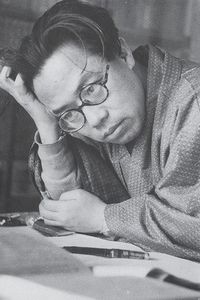Seichō Matsumoto, a celebrated and highly acclaimed Japanese writer, author, and literary luminary, came into this world on December 21, 1909, a day that marked the beginning of a remarkable journey that would span nearly eight decades and leave an indelible mark on the world of Japanese literature.
Matsumoto's remarkable literary journey has had a profound impact on the Japanese crime fiction landscape, transforming the genre in a manner that defies conventions by opting for innovative narrative approaches that delve into the complexities of human psychology and the intricacies of everyday life, thereby elevating the medium to a realm of thought-provoking sophistication.
Matsumoto's literary craftsmanship is characterized by his remarkable capacity to masterfully intertwine a broad societal backdrop with the existential despair that pervades postwar Japan, thereby significantly broadening the narrative's scope and imbuing the atmosphere with an inescapable sense of desolation and hopelessness, ultimately elevating the genre to new heights of emotional resonance and intellectual depth.
The writings of this individual consistently shed light on the pervasive corruption that permeates the ranks of law enforcement, as well as the criminal underworld, thereby providing a novel and insightful exploration of the complex relationships between crime and the societal structures within which it operates.
Matsumoto's literary endeavors transcended the mere examination of the criminal act itself, instead probing the intricate web of societal dynamics that enabled such heinous crimes to take place, thereby imbuing his narrative with a profound sense of depth, richness, and complexity that utterly captivated his audience.























